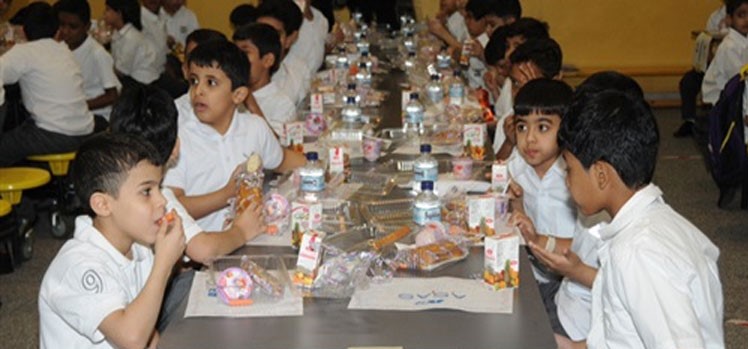For many years, the school meal that is distributed to students in schools has been the cause of crises and problems. Even though the Ministry of Education announced its interest and development, the situation has worsened.
At the beginning of each academic year, the government announces the allocation of millions in contracts to manufacture school meals, and as soon as the study begins, cases of poisoning appear among students as a result of this meal, and the government is forced to stop their distribution. Due to the frequent poisoning cases, parents are now advising their children not to receive the school food distributed to them and to be satisfied with what they take from home. The school meal has turned into a headache for the government and parents, especially in light of concern about the spread of coronavirus in schools and in light of the precautionary measures that have followed.
The Ministry of Health confirmed that this year, caution should be exercised in the manufacture and distribution of school meals so that they do not turn into a means of transmitting infection, and it called on those in charge of distributing them among education officials to adhere to the preventive measures. The Ministry of Health stressed the need for medical gloves and masks to be worn while packing and distributing school meals, while many parents expressed their refusal for their children to eat the meals.
The school meal
Through social media platforms, many parents demanded the closure of schools from the ground up and the cancellation of the school year in light of the corona pandemic, which was rejected by the Minister of Education Tarek Shawky. Students and their parents stressed the rejection of the idea of school meals in light of the spread of the virus and the bad reputation it has had for many years. The school meal, a 66-year-old story, began with the issuance of Law 25 of 1942, which obligates the state to provide the necessary expenses for feeding for the elementary stages of education, and since its approval in schools, it is a story that continues with its pain.
Approximately 14 million male and female students benefit from the school meal annually, and the school meal budget is approximately EGP 1 billion, according to data from the Central Bureau of Statistics. Despite this huge budget, the school meal distribution system has faced several problems over the past years, in addition to doctors’ criticism of its nutritional and health value in light of the spread of anemia and obesity among students.
The head of the central administration to address school dropout, Randa Halawa, stated in a press release in 2016 that 90 per cent of school meals are produced and manufactured by the military factories. She explained that the National Service in the Armed Forces and the Ministry of Agriculture manufacture biscuits or bread and cheese that are distributed as school meals and put on the cover, Long Live Egypt, or Safe Egypt.
Food poisoning
Perhaps the interference of military factories in the manufacture of school meals is what prevents the investigation of corruption related to wasting money on these meals and the repeated cases of food poisoning that have resulted from them. In March 2017, Tarek Shawky, the Minister of Education, decided to stop dispensing meals to students until further notice, after incidents of suspected poisoning of nearly 4,650 students, according to official government reports. Reports proved that the incidents of poisoning came as a result of eating school meals.
Distribution of school meals returned at the beginning of March 2018 after a year-long hiatus, and it was only weeks before it stopped again. In March 2018, the Ministry of Health and Population announced that three pupils had suffered abdominal pain in a primary school in Bir Shams village, al-Bagour Centre, Menoufia Governorate, after they had eaten the school meal, then 58 other students. After the incidents of poisoning, pictures, and clips of school biscuits containing worms spread, which angered students and parents who demanded they be abolished, criticising the failure to investigate these dangerous and repeated incidents.
In conjunction with poisoning cases, the Ministry of Education announced in December 2018 that it was moving to review the school feeding system. She explained that this was after the comprehensive survey conducted by the Ministries of Education and Health for early detection of anemia, stunting, and obesity among primary school students. Dr. Soheir Abdel-Hamid, head of the Health Insurance Authority at the Ministry of Health, revealed that 22 per cent of school students have anemia, with a rate of more than 7,000 students, which is a dangerous indicator. She added that 14 per cent of school students are obese, including 11 per cent of girls. She confirmed that school meals would be changed to eliminate anemia, in addition to raising awareness of anemia cases about proper diets, and involving parents in this training plan. Since that announcement, the situation has remained the same, and fear among students and their parents has increased in light of the emergence of corona cases in schools.





Recent Comments